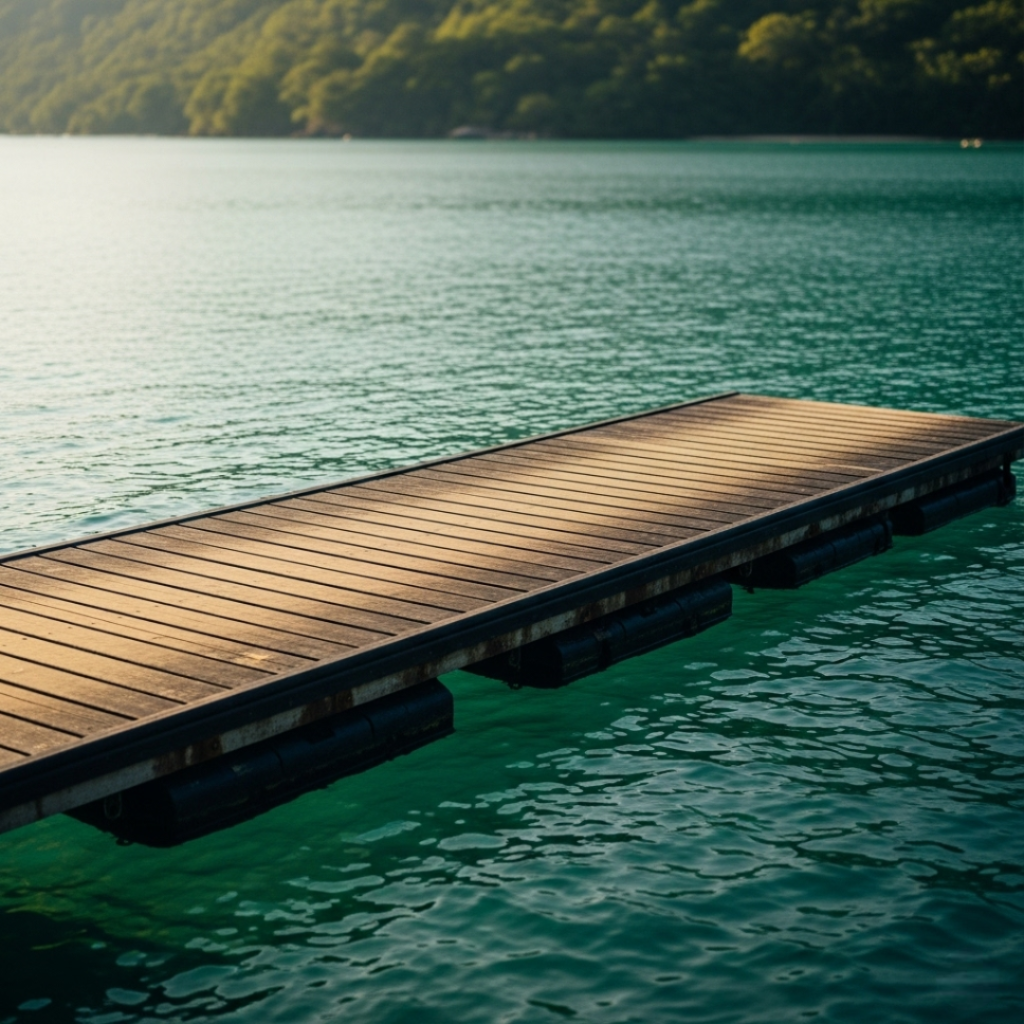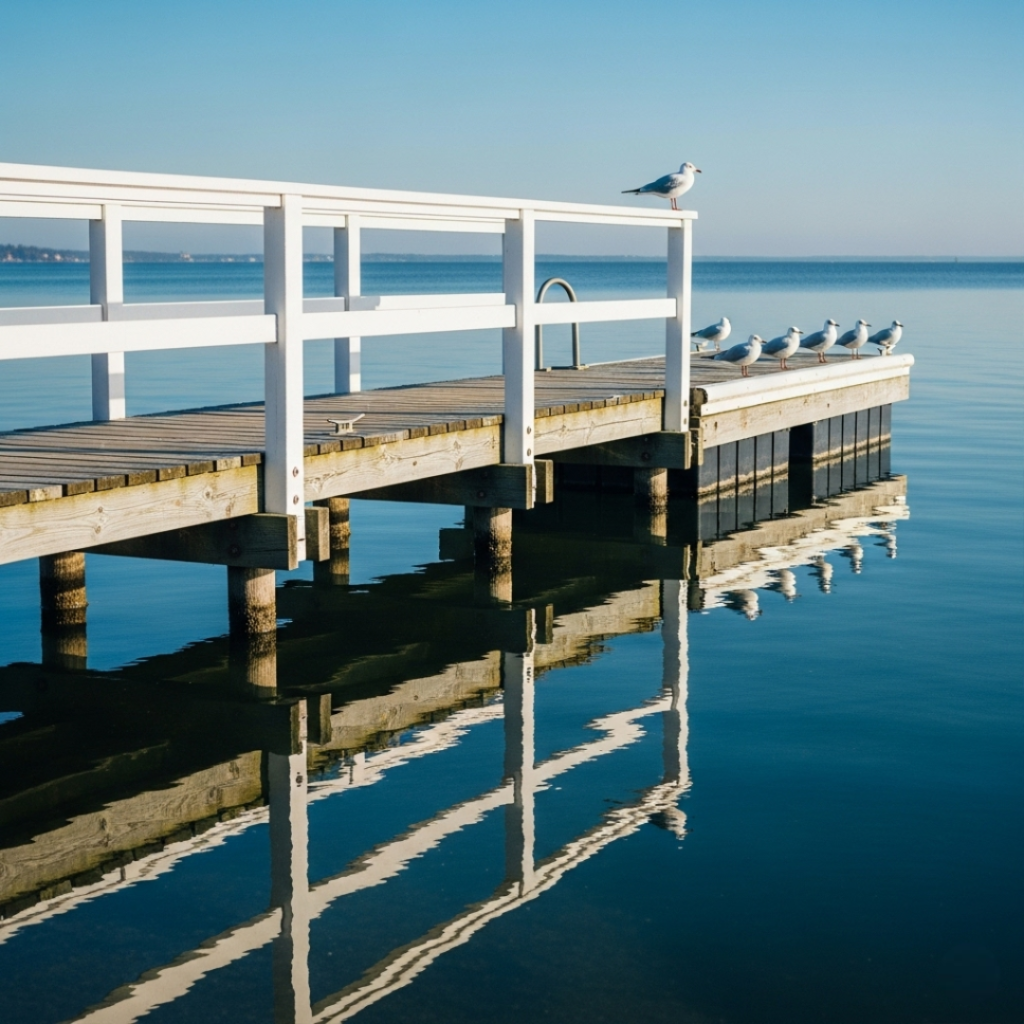Floating Dock vs. Stationary Dock: Which Is Right for Your Waterfront Property?
If you’re planning to enhance your waterfront property, one of the biggest decisions you’ll face is whether to install a floating dock or a stationary dock. The debate around floating dock vs stationary options is common among waterfront property owners and for good reason. Both have unique benefits, but the right choice depends on your water conditions, intended use, and long-term goals. In this blog post, we’ll compare floating and stationary docks to help you make the best decision for your shoreline.
What Is a Floating Dock?

A floating dock is a platform that rests on the surface of the water, supported by air-filled pontoons or barrels. It rises and falls with the water level, making it ideal for areas with fluctuating tides or lake levels.
Pros of Floating Docks:
- Adjusts to Water Levels: Perfect for properties with significant water level changes, such as rivers, lakes, or tidal zones.
- Easier Installation: Floating docks are typically quicker and less invasive to install compared to stationary docks.
- Modular and Portable: They can be moved, reconfigured, or removed for winter storage.
- Lower Upfront Cost: In many cases, floating docks are more affordable upfront than fixed docks.
Cons of Floating Docks:
- Less Stable: They move with waves and boat wakes, which can be a downside if you prefer a steady platform.
- Shorter Lifespan: Over time, the floats or decking may wear out faster, especially in rough water conditions.
What Is a Stationary Dock?

A stationary dock, also known as a fixed dock, is built with supports or pilings anchored into the lake or sea bed. It remains in place regardless of water level changes.
Pros of Stationary Docks:
- Sturdy and Stable: These docks don’t move with the water, making them ideal for activities like fishing or lounging.
- Durable Construction: Fixed docks are built to last, often using heavy-duty materials like steel, wood, or concrete.
- More Aesthetic Options: Stationary docks can be customized with features like railings, benches, lighting, and boat lifts.
Cons of Stationary Docks:
- Expensive Installation: Requires more materials and labor, especially if the water is deep or the bed is uneven.
- Less Flexible: Difficult to remove or adjust, and not ideal for areas with frequent water level changes.
- Can Be Damaged by Ice or Storms: In cold climates, ice can damage pilings, while storm surges may cause structural strain.
Floating Dock vs. Stationary Dock: Key Considerations
Here are some important factors to think about when deciding between a floating and a fixed dock:
1. Water Depth and Movement
- Shallow, calm water may be ideal for stationary docks.
- Deep, fluctuating, or tidal waters are better suited for floating docks.
2. Usage and Activities
- If you want a steady platform for relaxing or entertaining, a stationary dock is best.
- If your dock will be used for boating, kayaking, or seasonal use, a floating dock may offer more flexibility.
3. Climate and Environment
- Floating docks can be removed or adjusted for winter or storm protection.
- Stationary docks are more vulnerable in areas with ice formation or heavy wave action unless properly reinforced.
4. Budget and Maintenance
- Floating docks are generally less expensive upfront and easier to install.
- Stationary docks often require a higher investment but are more permanent and stable long-term.
Which Dock Is Right for You?
When it comes to floating dock vs stationary dock options, the right choice depends on your specific waterfront conditions and how you plan to use the dock. Floating docks offer flexibility, adaptability to water level changes, and easy installation perfect for dynamic environments. On the other hand, stationary docks provide long-term stability, a more solid structure, and are great for recreational use in calmer waters.
Need help deciding which dock is right for your property? At Dockstop, we specialize in custom dock solutions tailored to your shoreline. Whether you need a floating or stationary dock, our experts will guide you through every step from design to installation. Contact Dockstop today to get started on the perfect dock for your waterfront lifestyle!
